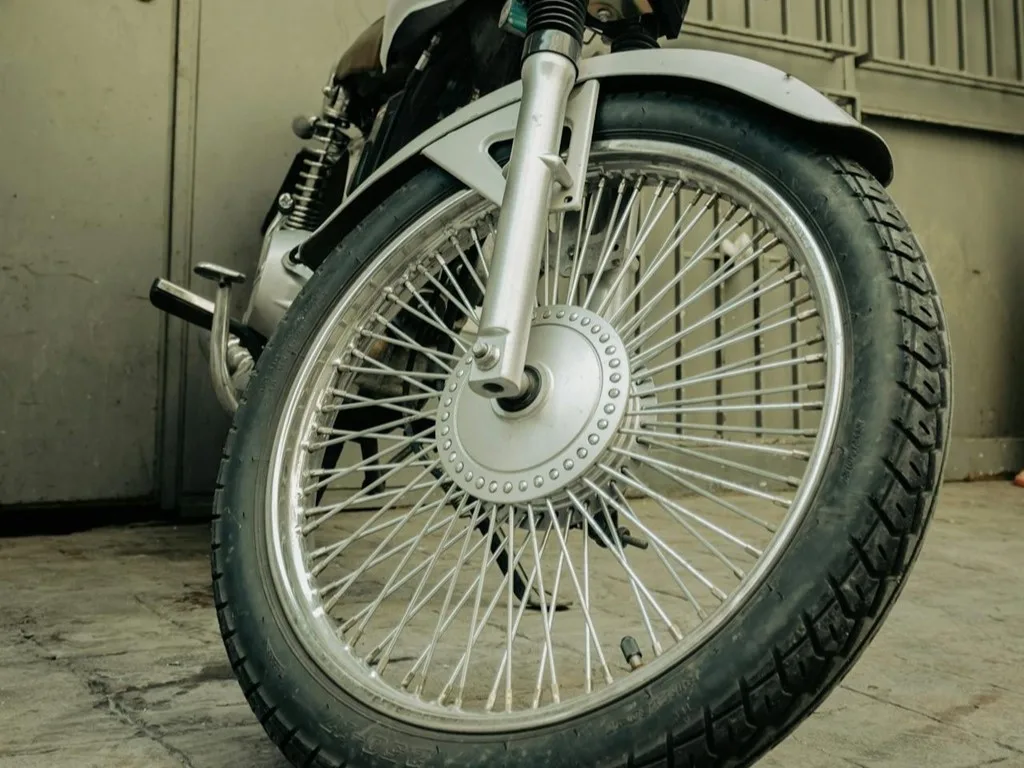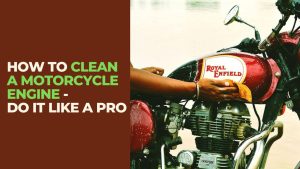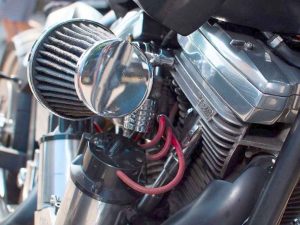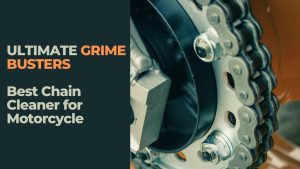🎯 Key Takeaways
- Spoked motorcycle wheels offer better impact absorption and are ideal for off-road use.
- Compared to alloy wheels, spoked wheels fail gradually but need more upkeep.
- Modern tubeless spoked wheels combine off-road durability with easier puncture repair.
- Neglecting spoke tension or riding in corrosive environments increases safety risks.
- Routine checks and proper care make spoked wheels safe for everyday and adventure riding.
Last summer, I was cruising at 110 km/h and suddenly heard a snap followed by a subtle wobble. I slowed down, pulled over, and discovered a broken spoke. Nothing catastrophic, but it could have been.
This common but often overlooked scenario raises an important question:
Are spoked motorcycle wheels dangerous, or just misunderstood?
In this blog post, I’ll dive deep into this question, analyzing the strengths and weaknesses of spoked wheels, comparing them with alloy wheels, addressing safety, and revealing what many online articles miss.
The Case For and Against Spoked Wheels
Spoked wheels are made of a central hub connected to the rim by a series of thin metal spokes. This design allows for some flexibility and shock absorption, which has made them popular for off-road and adventure motorcycles.
Here are some strengths and downsides of these wheels:
Strengths of Spoked Wheels
- Shock Absorption: Ideal for rough terrain. The flexible nature of spokes absorbs impact better than solid wheels.
- Repairability: A broken spoke can often be replaced individually without needing to replace the entire wheel.
- Classic Aesthetic: Beloved for their retro and rugged look, common on scramblers, café racers, and ADV bikes.
Weaknesses of Spoked Wheels
- Higher Maintenance: Spokes need to be trued (adjusted for tension and alignment) regularly. If neglected, wheel integrity can degrade fast.
- Tubed Tires: Most spoked wheels require inner tubes, which are harder to repair on the road and can fail suddenly if punctured.
- Corrosion Risk: Traditional steel spokes are susceptible to rust, especially in humid or coastal environments.
The Comparison: Spoked vs. Alloy Wheels
| Feature | Spoked Wheels | Alloy Wheels |
|---|---|---|
| Impact Resistance | Flexes under load; better off-road | Rigid; better on-road at high speeds |
| Failure Mode | Gradual (loose/broken spokes) | Sudden (crack or break) |
| Maintenance Needs | High: Regular truing & checks | Low: Maintenance-free in most cases |
| Puncture Repair | Requires tube repair | Plug tubeless tire in minutes |
| Cost of Repair | Low (spokes replaceable) | High (cracks often total the wheel) |
| Weight | Often heavier | Usually lighter |
Are Spoked Wheels Inherently Dangerous?
Let’s clarify: danger implies a high likelihood of failure with severe consequences.
Are spoked motorcycle wheels dangerous? Spoked motorcycle wheels are not inherently dangerous; however, their complexity and reliance on manual upkeep can introduce risks.
Unlike alloy wheels, spoked wheels can absorb impacts better and are easier to repair, making them ideal for off-road and adventure riding. However, loose spokes, rust, or tube blowouts can increase risk if neglected.
Common Failure Points in Spoked Wheels
- Loose spokes: Can cause wheel misalignment and instability.
- Cracked nipples or rusted spokes: Structural weakness over time.
- Tube punctures: Unlike tubeless tires, tubes deflate rapidly, increasing crash risk.
When Are Spoked Wheels Most Dangerous?
- On high-speed highways if spokes are unbalanced or loose.
- During emergency braking if the rim is bent or spoke tension is uneven.
- When poorly maintained or ridden in salty/humid conditions without corrosion protection.
“I hit the mother of potholes, and it dented my alloy rear wheel… Spoked wheels just don’t crack apart.” Reddit
Enter Tubeless Spoked Wheels, A Safer Middle Ground
Some modern bikes now feature tubeless-compatible spoked wheels (e.g., Royal Enfield Himalayan 450, BMW GS, KTM Adventure series). These use sealed spoke beds or offset spokes to allow air-tight, tubeless tires.
Advantages of Tubeless Spoked Wheels
- Easier repairs: Plug punctures like on alloy wheels.
- Retain flexibility: Still rugged for off-road use.
- Costlier upfront, but more practical long-term.
“A badly bent rim off-road will still hold air with a tube. Tubeless is much harder to limp back to the trail head.” Reddit
Maintenance = Safety
Spoked wheels require vigilant care to remain safe. Here is the maintenance checklist:
| Task | Frequency | Tools Needed |
|---|---|---|
| Check spoke tension | Every 1000 km | Spoke wrench |
| Inspect for rust or cracks | Monthly | Visual check |
| Re-true the wheel | Every 5000–7000 km | Truing stand or mechanic |
| Check rim alignment | Before long rides | Spinning test |
| Clean and dry after wet rides | As needed | Mild soap, microfiber cloth |
Environmental & Riding Style Factors
Spoked wheels behave differently depending on where and how you ride.
| Condition | Risk with Spokes |
|---|---|
| Coastal roads | Salt accelerates corrosion |
| Urban potholes | High chance of rim or spoke damage |
| Off-road terrain | Ideal use-case |
| High-speed touring | Potential flex and vibration issues |
Myths vs. Reality
| Myth | Reality |
|---|---|
| Spoked wheels are weak | They’re stronger than alloys in impact scenarios |
| Spoked wheels are outdated | Tubeless tech has modernized them significantly |
| Alloys are always safer | Not if they crack suddenly without warning |
| Spoked wheels are low-maintenance | They demand more upkeep than any other wheel type |
| Tubeless conversion is dangerous | If done right (tape/seal kit), it’s safe and proven by ADV riders |
FAQs
Are spoked motorcycle wheels dangerous?
Not inherently, spoked wheels are safe when maintained properly. Their flexibility and repairability make them durable, especially off-road. But neglect (loose spokes, rust, tube failures) can increase risk.
Can spoked wheels be converted to tubeless?
Yes, some modern spoke rims support tubeless tires using sealing tape or kits. It’s more complex and costly than alloy setups but boosts on-road convenience.
Which requires less maintenance: spoke or alloy wheels?
Alloy wheels demand far less upkeep, no truing or spoke checks needed. Spoke wheels require regular tension adjustment and inspection for safe performance.
Why are spoke wheels preferred for adventure riding?
Spoke wheels flex and absorb impacts better, reducing the chance of cracks on rough terrain. Individual broken spokes can be replaced, ideal for remote adventures.
Are alloy wheels safer for street and highway use?
Yes, due to their rigidity, tubeless compatibility, and lighter weight, alloy wheels offer stable handling at speed and easier puncture fixes.
What happens if an alloy wheel gets damaged?
Damage to an alloy rim, like a crack or dent, is often irreparable. Replacement is usually the only safe option.




